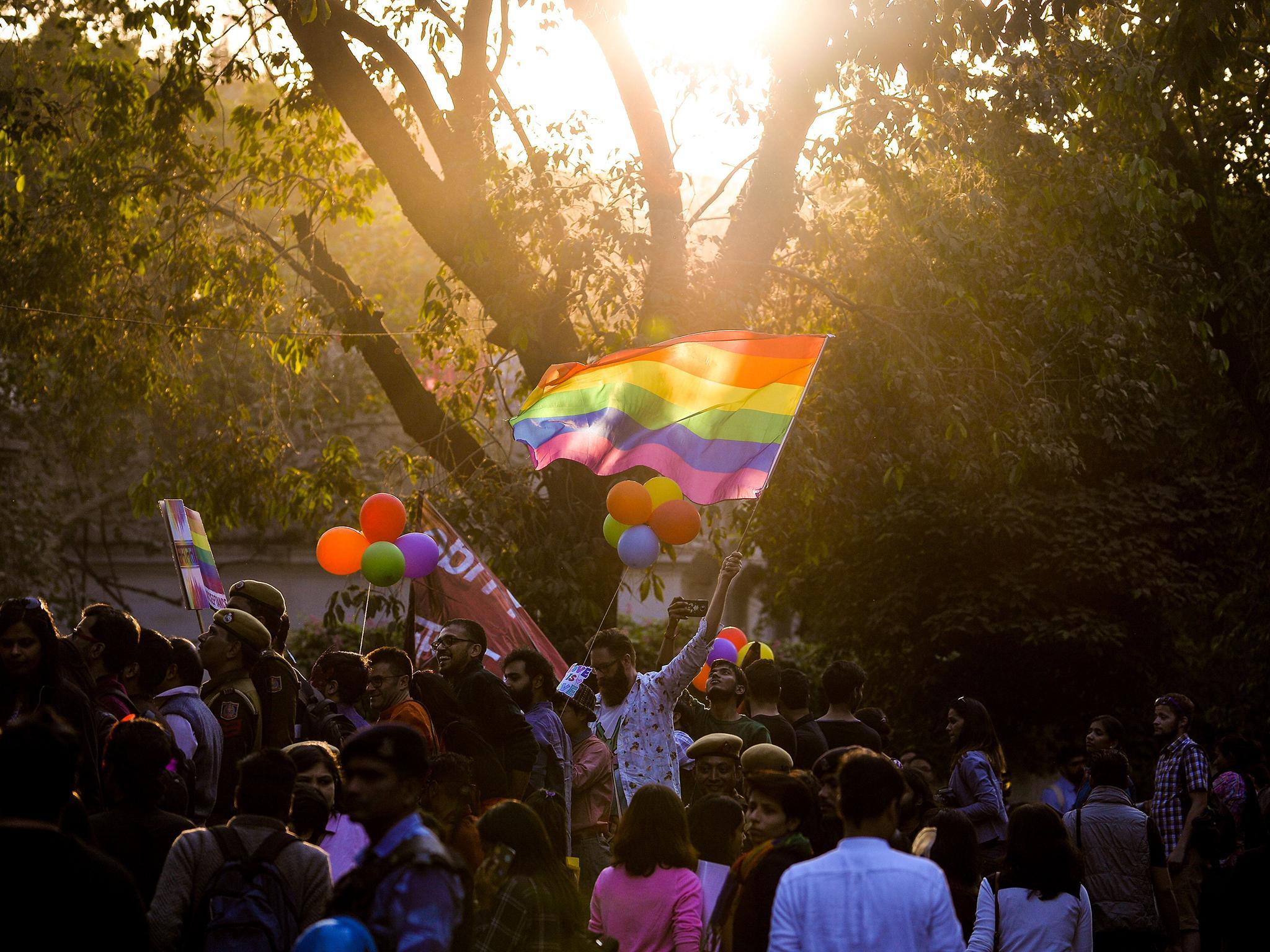India declares freedom of sexual orientation a fundamental right
'Discrimination against an individual on the basis of sexual orientation is deeply offensive to the dignity and self-worth of the individual'

Your support helps us to tell the story
From reproductive rights to climate change to Big Tech, The Independent is on the ground when the story is developing. Whether it's investigating the financials of Elon Musk's pro-Trump PAC or producing our latest documentary, 'The A Word', which shines a light on the American women fighting for reproductive rights, we know how important it is to parse out the facts from the messaging.
At such a critical moment in US history, we need reporters on the ground. Your donation allows us to keep sending journalists to speak to both sides of the story.
The Independent is trusted by Americans across the entire political spectrum. And unlike many other quality news outlets, we choose not to lock Americans out of our reporting and analysis with paywalls. We believe quality journalism should be available to everyone, paid for by those who can afford it.
Your support makes all the difference.India’s Supreme Court has issued a historic ruling confirming the right of the country’s LGBT people to express their sexuality without discrimination.
Judges ruled that sexual orientation is covered under clauses in the Indian Constitution that relate to liberty, despite the Government claiming there was no legal right to privacy.
The ruling paves the way for discriminatory practices against LGBT people to be challenged in the courts.
The Supreme Court’s judgement read: “Sexual orientation is an essential attribute of privacy.
“Discrimination against an individual on the basis of sexual orientation is deeply offensive to the dignity and self-worth of the individual. Equality demands that the sexual orientation of each individual in society must be protected on an even platform.”
One of the first laws to be amended after the ruling could be the controversial Section 377 of the country’s penal code, which bans sexual activity that is “against the order of nature”. Many have interpreted the wording to include gay sex.
In 2009 the section was dismissed by the High Court of Delhi, but that verdict was overturned by the Supreme Court, which said it was the responsibility of Parliament, not the judiciary, to change the law. Another legal challenge to Section 377 is currently underway.
The latest Supreme Court ruling confirming the freedom to express sexual orientation formed part of a wider case assessing whether privacy was a fundamental right for the 1.3 billion people living in India. The nine-judge panel decided it should be considered as part of the right to life and liberty enshrined in the country’s constitution.
The Indian government had argued that the constitution included no right to privacy – an issue that has arisen as ministers defended India’s biometric identification programme, called Aadhaar. The programme, which gives Indians a 12-digit number that matches their retina scans and fingerprints, has been criticised by civil rights activists.
The Indian government said it would respect the ruling but questioned how much impact it would have.
Ravi Shankar Prasad, the country’s Law and Justice Minister, said: “The right to privacy is not absolute. It is to be determined on a case by case basis.”
Join our commenting forum
Join thought-provoking conversations, follow other Independent readers and see their replies
Comments